- Home
- Kelley Armstrong
Snowstorms & Sleigh Bells: A Stitch in Time holiday novella Page 2
Snowstorms & Sleigh Bells: A Stitch in Time holiday novella Read online
Page 2
August kisses my forehead and eases me out of the office, shutting the door behind us.
“I’m sorry,” I say. “I overreacted.”
“No,” he says. “You reacted exactly as one might expect, given the trauma you endured and the fact that you have not yet allowed yourself to fully come to terms with it.”
“Fully come to terms with it?” I roll my eyes. “You and Bronwyn have been talking about me, haven’t you? That is clearly twenty-first-century therapy language.”
“Well, then perhaps what you need is twenty-first-century therapy . . . in the nineteenth century.”
I slip from his grasp and grimace. “I’m fine, August. It was traumatic—while I was there and couldn’t get home. But I’m home, and things are even better than before. What more could I want?”
He doesn’t answer. Just studies my expression.
My husband presents as a simple man—the carefree, devilishly handsome youngest son of an earl, endlessly witty and charming. Yet if we must speak of trauma, he has more than his share. It makes him complicated, and I adore him for that, as I adore being one of the few people who sees how great a treasure he is. Yet there are times, such as this, when I wish my husband was a little more of the image he presents. When I wish he was a little less thoughtful, a little less introspective, a little less attuned to the emotions of others.
I want to be fine. I am fine. I just need him to stop wishing I’d admit to something I don’t—well, barely—feel.
I put my arms around his neck. “How are we doing, August?”
His face breaks into a grin, and I press my lips to his.
“We are doing amazingly,” I say. “We were not doing nearly as well when I left, as much as that pained us both. While I never would have wanted to lose four years with you and Edmund, if some deity offered me the choice—give up four years or lose the love of my life—I would have stepped through that time stitch myself. That is how I see it. I went away, and I came back changed and found you also changed, and we are so much better.”
“You didn’t need to change, Rosie. It was me.”
“And I needed to see that—stop blaming myself for your jealousy and insist we work together to save our marriage. That’s what I learned. Confidence and strength.”
“I’m quite certain you possessed plenty of both already. But yes, I understand your meaning, and I will allow you, temporarily, to pretend you suffer no lingering trauma from the experience.”
“Or you could just accept that I don’t suffer any.”
He turns and heads down the hall. “We ought to find William before he gives Edmund a fright.”
I sigh, shake my head and follow.
3
William is not in the house.
And neither is Edmund.
It takes at least ten minutes for the truth of that to sink in. It was such an obvious answer. William is in the modern world, and it’s less than a two-hour drive from York. If he realized Bronwyn needed something in the Victorian world, he’d have gone home to get it. Or if he realized he needed to tend to a matter of business, she’d have sent him back to do it. He comes through the stitch. Unlocks the office door. Doesn’t notice us because he’s distracted and not expecting guests.
When we don’t find him in the house, we check outside, presuming he went to the stables to visit his beloved horses, but the only tracks in the snow are from our boots and Mrs. Shaw’s.
That is the moment when we both realize we haven’t seen Edmund. We didn’t forget about our son. We’d briefly noted that the nursery room door was shut, and noises from within suggested he was still hard at work.
Once we accept that William hasn’t come home early, we race upstairs. I let August go first, his less cumbersome attire allowing him to take the steps two at a time. He soon disappears from sight. This is the lingering effect of his traumas—a terror of losing his loved ones. Yes, I lost my parents, but I have two younger sisters I adore. He lost his mother and his sister, the only people who cared about him. He also lost his fiancée through circumstances that now make me shudder in relief that he hadn’t married her. And he lost his wife—me—for four years. So he is up those stairs so fast I doubt he even draws breath.
A crash sounds from above, as if he’s burst into the nursery.
“Edmund?” he calls. “Edmund!”
Skirts hiked, I tear down the hall and swing into the nursery. There are no decorations save two porcelain angels, one now on the carpet. That’s the noise we heard. Not Edmund moving about but Pandora trapped in the nursery and none too pleased about it.
I race in and spin. “Edmund? Edmund!”
He’s not here. There’s a crib and a trundle bed and no place for our son to hide.
I run out, skidding around the corner and down the hall and into the office. I wildly search the room as if Edmund will pop from behind the chaise longue.
Then I see it.
A painted acorn on the floor.
I scoop it up, and in my mind, I see the two of us in the nursery at Courtenay Hall, painting pine cones and acorns and walnuts, making them into Christmas ornaments.
I stare at the acorn. Then I stare at the spot on the floor beside where it had lain. An empty spot with wear marks in the wood from a chest being moved back and forth, covering the stitch when it was not in use. Moved aside for the Thornes to pass through last week.
Before I even know what I’m doing, I lunge for the spot. I envision my son tumbling through time, hear him screaming in fear as he goes, and I lunge, as if I can still catch him. I fall, my foot twisting, and I land on my knees, pain slamming through them. I’m on all fours, gazing down at the wood floor with the wear marks.
As I see those familiar wear marks, tears spring to my eyes. I didn’t pass through.
I scramble to my feet to try again. Then I see the desk. It looks like the same desk as before, yet this one has a laptop on it.
My heart stops. It beats twice, like a panicked bird, and then it seems to stop, and I can’t breathe.
Oh God, no. No, no, no. I spent four years trying to escape this world, and now I’m back and . . .
And I wanted to be here. I jumped through the stitch on purpose. I am certain Edmund crossed, and so I came after him.
But what if he didn’t?
Or what if he did, and we can’t get back, and August can’t get through and—
Stop.
I rise, breathing deeply and fisting my hands to control my shaking. I’m being ridiculous. I passed through intentionally. I’ll find Edmund and return. Why am I in such a state?
You reacted exactly as one might expect, given the trauma you endured.
I shake off August’s words. Enough of that. I am fine. Perfectly fine.
“Edmund?” I call as I walk to the door. It’s wide open. Proof that he’s been here? I can only hope so.
I lift my skirts and jog into the hall. “Edmund? Edmund!”
A noise below. A soft noise, and I almost ignore it. Just one of the cats again. Then I remember that all three cats are accounted for on the other side of the stitch. I run down the stairs, skirts hiked up in both hands, neither on the railing, and I stumble, my soft boots slipping. My hands fly up, and I crack down on my tailbone and howl as pain rips through me.
“Mama!”
That voice. That word. It sends me levering up, ignoring the screaming in my back, even as a voice behind me says, “Rosalind!”
August’s footsteps thunder down after me, but I’m already flying to Edmund. I snatch him up and squeeze him, my heart still threatening to pound straight from my chest. Then August is there, his arms around us, murmuring, “It’s all right, Rosie. We’re all here. We’re all fine.”
“We need to get home,” I say, my voice so breathy it’s barely audible. I hoist Edmund into my arms and break from August’s embrace. “We need to go. Now.”
“But—” Edmund begins.
“No!” I say, and my voice is sharper than he’s ever he
ard. He flinches. I scatter kisses on his forehead as I begin to climb the stairs. “I’m sorry. I didn’t mean to shout.”
“Let me carry him,” August says.
I hesitate. It’s only a split second, but it is enough to shame me. Do I expect a trick here? For August to take Edmund and not let me flee through the stitch with him? In my heart, I know that would never happen, and yet for that split second, I am in the days before our reunion, when I feared exactly such a thing. That August might not believe my story and might keep our son from me for “abandoning” him.
That fear had been borne of nightmare, a worst-possible scenario that I did not truly believe possible of the man I knew. But there’d been moments there when I’d wondered whether August was the man I knew. Whether he had changed or whether I had only seen what I wanted to see.
I know better, but that doesn’t keep the fear and doubt from rising, if only for a moment. A flash of remembered pain, sharper than the throbbing in my back as I clutch Edmund to me. Then I turn, carefully, and hand him to his father.
“We’ll do whatever you need to do, Rosie,” August murmurs.
“But, Papa—” Edmund begins.
“No.” August’s voice is gentler than my panicked snap, but it’s firm enough for Edmund’s small shoulders to slump.
“Yes, Papa.”
We continue up the stairs. I stride into the office and then stop, my heart suddenly in my throat.
“What if we can’t all get back?” I whisper. “What if one of us is stuck—?”
I don’t finish before August lifts me under his free arm and crosses those last steps to the stitch. One heart-stopping moment, and then we are through, and I’m scrambling against his hold until he puts me down, and I drag both of them away from the spot.
Then I can breathe.
I can finally breathe.
4
August sets Edmund on the desk chair and says, “Stay right there. Understand? You did a naughty thing, and it would be wise for you to remember that, should you feel the need to argue.”
There’s a lightness in August’s voice, rendering it mock sternness. Edmund knows that doesn’t mean his father isn’t serious, and he nods.
Then August turns to me and takes my hands in his. “We’re back, Rosie. We crossed over and returned.”
I can only nod as I recover my breath.
“So that is the twenty-first century,” August muses.
I hiccup a laugh. “A very brief glance of it. I know that must have been disappointing.” I look at Edmund. “For both of you.”
I expect—hope?—August will brush it off, saying he has no interest in seeing the modern world. I also know that would be a lie, so I am not surprised when he only murmurs, “Hmm.”
“I apologize,” I say. “I should have let you take a look around. It’s only . . .”
“You feared we might not be able to get back, and as lovely as the twenty-first century is, our home is in the nineteenth.”
I nod. Then I say, softly, “Still, I did overreact.”
“I understood.”
“We would have been fine in that world.” I wipe sweat from my forehead. “I overreacted.”
“No, Rosalind. I respect your response as it arises from the trauma you experienced.”
I glare at him. “Bronwyn bought you a book, didn’t she?”
“I have no idea what you’re talking about,” he says. “But if she did, I can assure you she would not foist such a tome upon me without my clear request for it.”
I sigh and shake my head.
“May I make a suggestion?” August says. “One that has nothing to do with anything I may or may not have read.”
“Go ahead.”
“We crossed the stitch. Effortlessly. There and back. I believe, acknowledging my minimal knowledge of such things, that indicates we are free to cross back and forth, as the Thornes are.”
I open my mouth to protest.
He cuts in. “We do not know what allows people to cross or prevents them from doing so. Without that information, we can never be absolutely certain that passage is possible. Yet, once the way opened for the Thornes, it remained open, and they cross freely.”
I say nothing. He’s right. I simply do not wish to grant him the point because I suspect what is coming.
“Edmund?” August says. “Would you step out of the room, please?”
Edmund nods and leaves as August calls after him to close the door.
Once our son is gone, August lowers his voice. “I would like you to consider allowing us—the three of us—to cross over again.”
I stiffen so fast pain arcs through my bruised lower back. I wince, and August rubs my shoulders. I resist the urge to yank away. Resist the urge to snap and demand to know how he could ask such a thing of me.
Because it’s a reasonable request.
And if I’m angry at him for asking, that is unreasonable.
You reacted exactly as one might expect, given the trauma you endured.
I growl under my breath. August doesn’t comment. He keeps rubbing my shoulders as he waits with utmost patience.
“You want to see it,” I say. “Edmund wants to see it. I am denying you that.”
“No,” he says evenly. “I do not want to see it badly enough that I would ever do so without your freely given consent. Edmund is too young to understand that, but if he were older, he would say the same.”
“Still, you do want to see it.”
August sighs. “Of course I want to see it, Rosie. Someday. When you’re ready. If that is not now, then we’ll lock the door. We’ll leave the house entirely if it will make you feel better.” He shifts to face me. “But if it could be now, perhaps that is not such a bad thing. Perhaps it will help.”
I stiffen again.
He goes on. “I propose we cross over and let you take it at your pace. If that means merely allowing us to see a twenty-first-century home, that is enough. If we may also see the grounds . . . and perhaps that automated carriage William taunts me with . . .”
I sigh louder. “You want to see the car. That’s what all this is about, isn’t it?”
He grins. “Absolutely. Allow me to see that, and I will be happy. Allow me a ride in it—”
“No,” I say with a mock glower.
“All right, I will settle for seeing it in all its metallic glory. Then, perhaps, we could walk to the village. It will be decorated for the holidays. I wonder what that would be like, in such a world. With lights running on this magical electric current. I suppose it would be a wondrous thing for a man to see, just once in his life—”
“Stop,” I say as my glower deepens. “You are impossible.” I raise my voice. “Edmund? Come in here a moment, please?”
The door creaks open, and he peers through. His gaze slips to his father, and I cannot fault him for that, even if it does give me the briefest pang. For most of Edmund’s life, it has been only his father and he. I left when he was too young to remember me. I am eternally grateful for the bond between August and Edmund, and so, no, I cannot fault my son for still checking in with his father when he is uncertain. We need more time. I already have his love. I have his respect. Now I need to fully earn his trust.
“Edmund?” I say. “Can you explain what happened?”
His cheeks flush bright red.
“Edmund?” I say. “If I seem angry, I am only worried. You did a thing I very much did not want you to do. However, I never told you not to do it. So, while I think you know it was not allowed, you are not in trouble. I only need to understand what happened. That door was locked, was it not?”
He nods.
“Did you find the key?”
He shakes his head.
“You picked the lock?”
His face screws up at the word. “No, I prized it open.”
“Prized . . . ?” I slump. “Your aunt Miranda taught you to open locks.”
Horror crosses his small face. “N-no, Mama, I did not say it
was Aunt Miranda.”
I fix him with a look. “Are you telling me it was not my sister? Answer carefully, Edmund, and remember that whatever Aunt Miranda said, it doesn’t mean she’d wish you to lie. You told me nothing. I guessed.”
Not a guess, really. The word prized gave it away, as did the action itself. My youngest sister is a writer, hence the varied vocabulary. More specifically, she is a writer of melodramatic tales of adventure and suspense, one who fully believes that she should not write about a thing like sword-fighting or lock-picking until she has mastered it herself. I fear for the day when she decides to turn her pen to murder mysteries.
Edmund reluctantly confirms it was Miranda.
“Yet, it was not Miranda who told you what lies within this room, was it?”
“No, Mama.”
I exhale. I may worry about my son or husband crossing over, but I live in terror of my sister discovering there is a doorway to another world. There will be no holding her back.
“Was it an accident?” I ask. “You were practicing your lock-prizing skills and when you walked into the room, something happened?”
Edmund pauses, a look crossing his face that almost makes me laugh. He is as terrible at subterfuge as his father.
August clears his throat. “Answer honestly, Edmund.”
Edmund’s shoulders sag. “No, Mama. It was not an accident. I was looking for Amelia’s special spot. She said it was in here.”
“Special spot?”
He nods. “She says she has another house. Like this one but different. To get to it, they come in here.”
I glance at August, who shrugs in bafflement. He’s thinking what I am—how the devil did Amelia tell Edmund that when the child has a vocabulary of several dozen words? Then I remember that when my sister, Portia, was small, my parents insisted I always knew what she was saying and acted as her interpreter.
I know William and Bronwyn have discussed how to handle their dual worlds once Amelia is old enough to talk. How to keep her from sharing her secret without making her feel as if she is being expected to lie. Apparently, they may need to discuss that sooner rather than later.

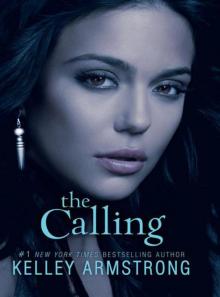 The Calling
The Calling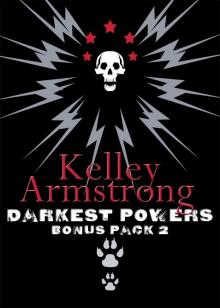 Darkest Powers Bonus Pack
Darkest Powers Bonus Pack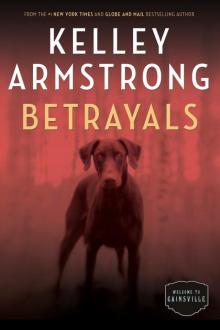 Betrayals
Betrayals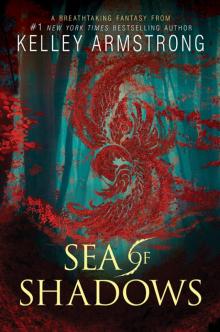 Sea of Shadows
Sea of Shadows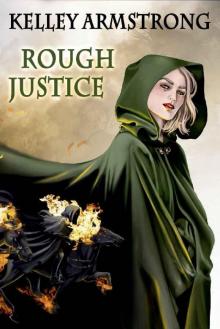 Rough Justice
Rough Justice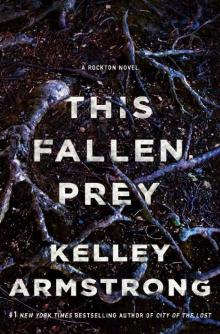 This Fallen Prey
This Fallen Prey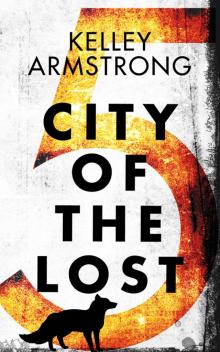 City of the Lost: Part Five
City of the Lost: Part Five Perfect Victim
Perfect Victim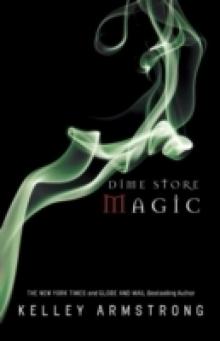 Dime Store Magic
Dime Store Magic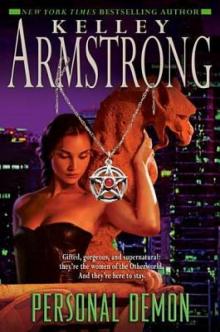 Personal Demon
Personal Demon Haunted
Haunted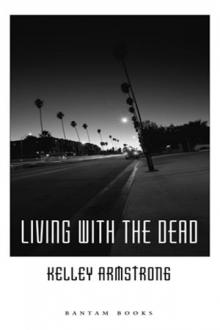 Living With the Dead
Living With the Dead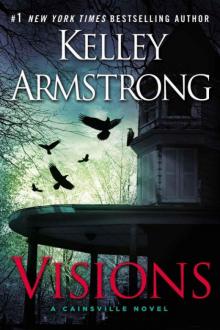 Visions
Visions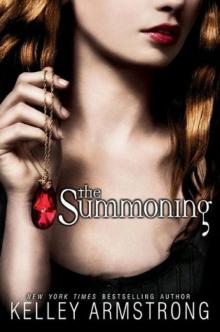 The Summoning
The Summoning Broken
Broken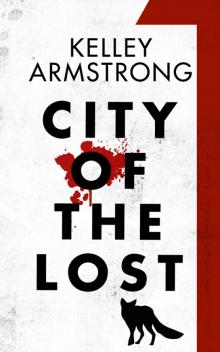 City of the Lost: Part One
City of the Lost: Part One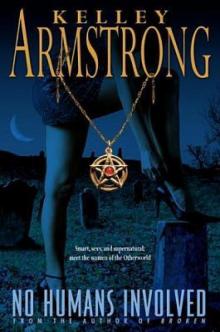 No Humans Involved
No Humans Involved The Awakening
The Awakening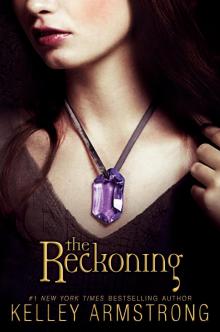 The Reckoning
The Reckoning The Gathering
The Gathering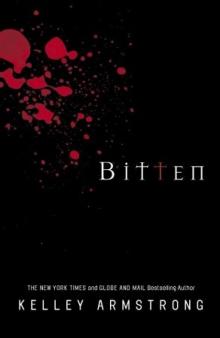 Bitten
Bitten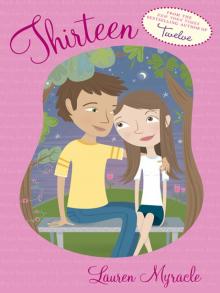 Thirteen
Thirteen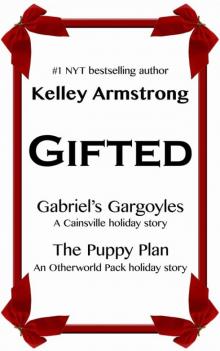 Gifted
Gifted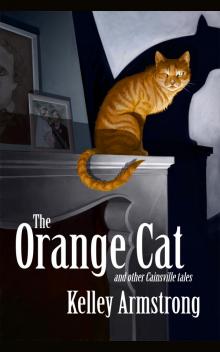 The Orange Cat and Other Cainsville Tales
The Orange Cat and Other Cainsville Tales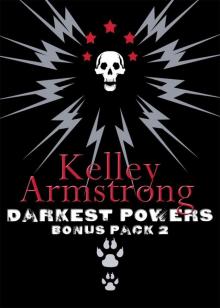 Darkest Powers Bonus Pack 2
Darkest Powers Bonus Pack 2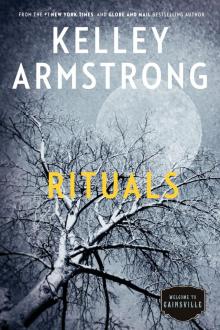 Rituals
Rituals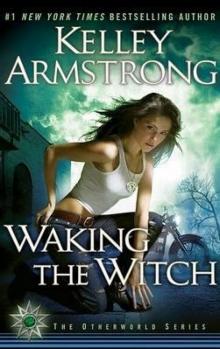 Waking the Witch
Waking the Witch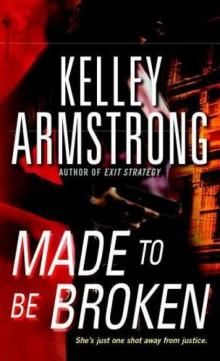 Made to Be Broken
Made to Be Broken Lost Souls
Lost Souls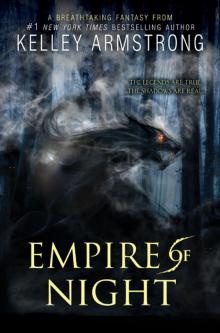 Empire of Night
Empire of Night Wild Justice
Wild Justice Double Play
Double Play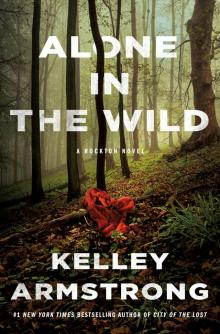 Alone in the Wild
Alone in the Wild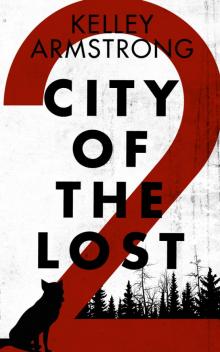 City of the Lost: Part Two
City of the Lost: Part Two A Stranger in Town
A Stranger in Town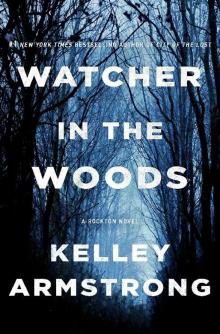 Watcher in the Woods: A Rockton Novel
Watcher in the Woods: A Rockton Novel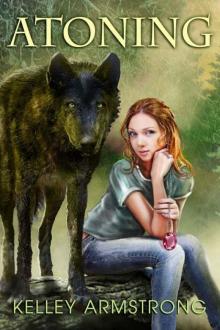 Atoning
Atoning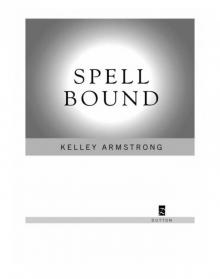 Spellbound
Spellbound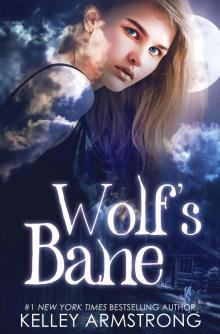 Wolf's Bane
Wolf's Bane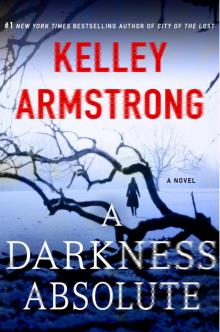 A Darkness Absolute
A Darkness Absolute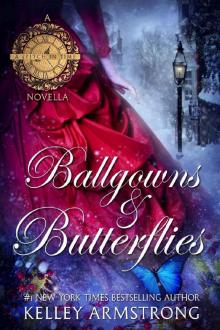 Ballgowns & Butterflies: A Stitch in Time Holiday Novella
Ballgowns & Butterflies: A Stitch in Time Holiday Novella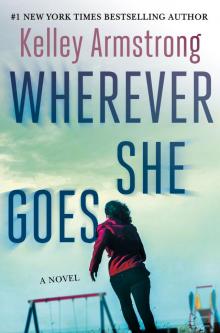 Wherever She Goes
Wherever She Goes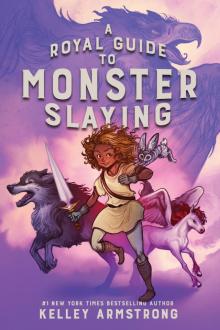 A Royal Guide to Monster Slaying
A Royal Guide to Monster Slaying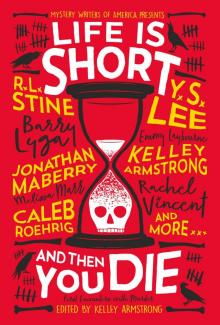 Life Is Short and Then You Die
Life Is Short and Then You Die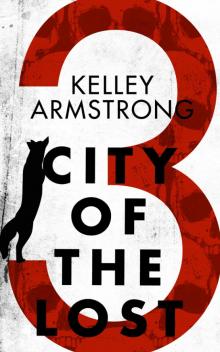 City of the Lost: Part Three
City of the Lost: Part Three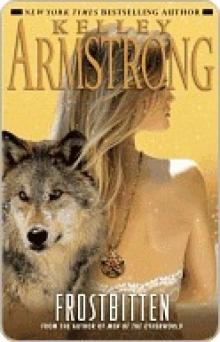 Frostbitten
Frostbitten A Stitch in Time
A Stitch in Time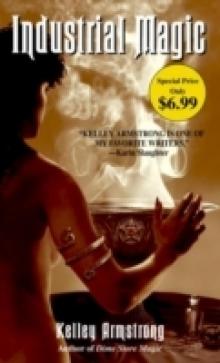 Industrial Magic
Industrial Magic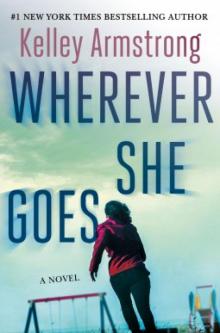 Wherever She Goes (ARC)
Wherever She Goes (ARC)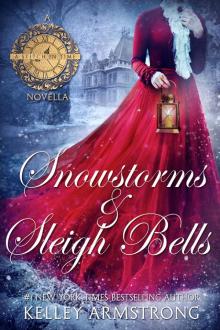 Snowstorms & Sleigh Bells: A Stitch in Time holiday novella
Snowstorms & Sleigh Bells: A Stitch in Time holiday novella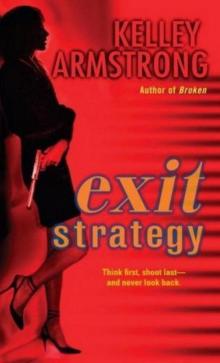 Exit Strategy
Exit Strategy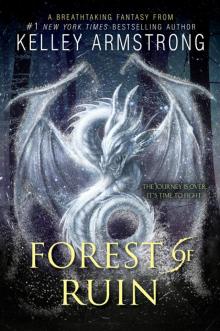 Forest of Ruin
Forest of Ruin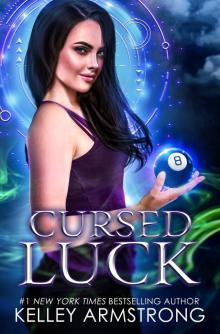 Cursed Luck, Book 1
Cursed Luck, Book 1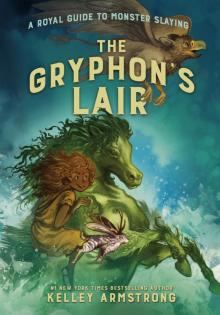 The Gryphon's Lair
The Gryphon's Lair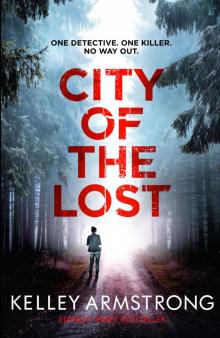 City of the Lost
City of the Lost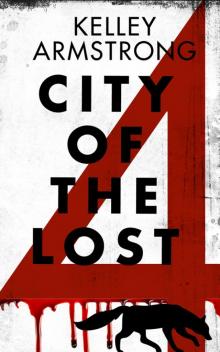 City of the Lost: Part Four
City of the Lost: Part Four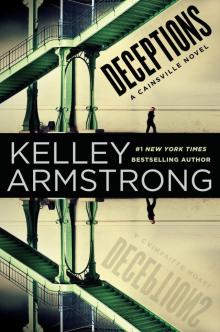 Deceptions
Deceptions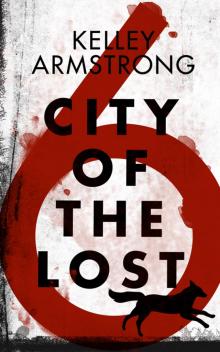 City of the Lost: Part Six
City of the Lost: Part Six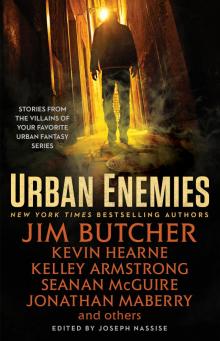 Urban Enemies
Urban Enemies Stolen
Stolen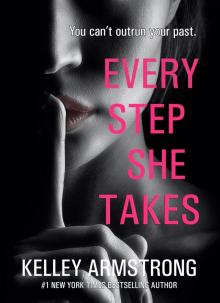 Every Step She Takes
Every Step She Takes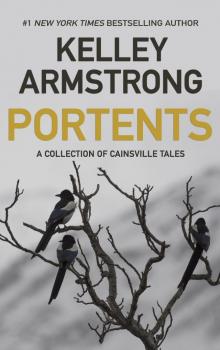 Portents
Portents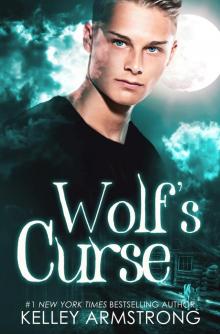 Wolf's Curse
Wolf's Curse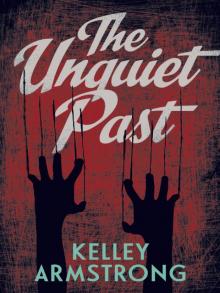 The Unquiet past
The Unquiet past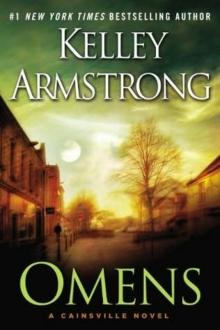 Omens ct-1
Omens ct-1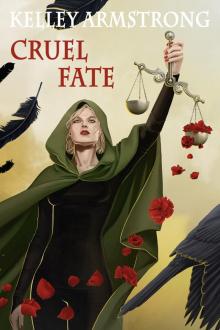 Cruel Fate
Cruel Fate The Calling dr-2
The Calling dr-2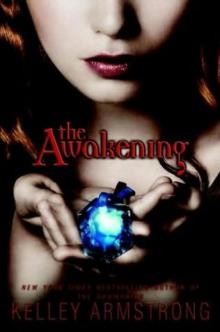 The Awakening dp-2
The Awakening dp-2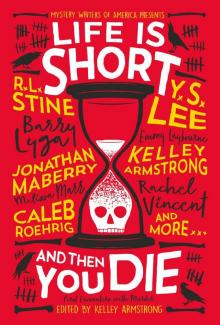 Life Is Short and Then You Die_First Encounters With Murder From Mystery Writers of America
Life Is Short and Then You Die_First Encounters With Murder From Mystery Writers of America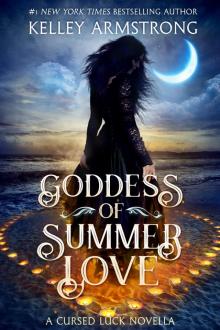 Goddess of Summer Love: a Cursed Luck novella
Goddess of Summer Love: a Cursed Luck novella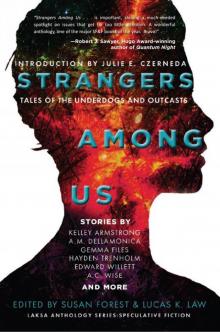 Strangers Among Us
Strangers Among Us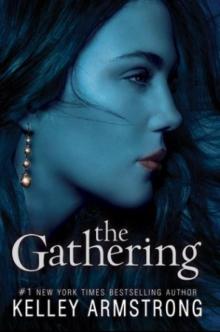 The Gathering dr-1
The Gathering dr-1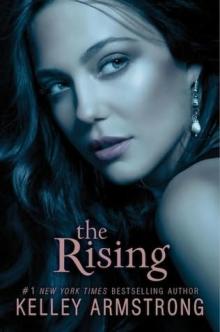 The Rising dr-3
The Rising dr-3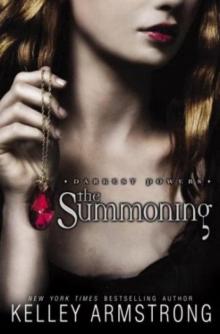 The Summoning dp-1
The Summoning dp-1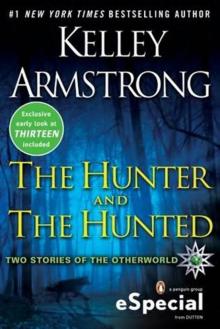 The Hunter And The Hunted
The Hunter And The Hunted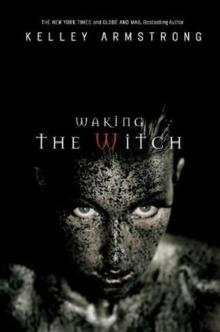 Waking the Witch woto-11
Waking the Witch woto-11